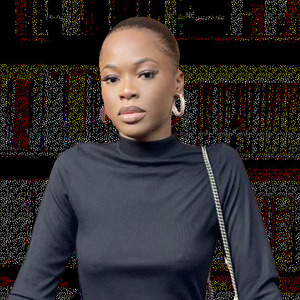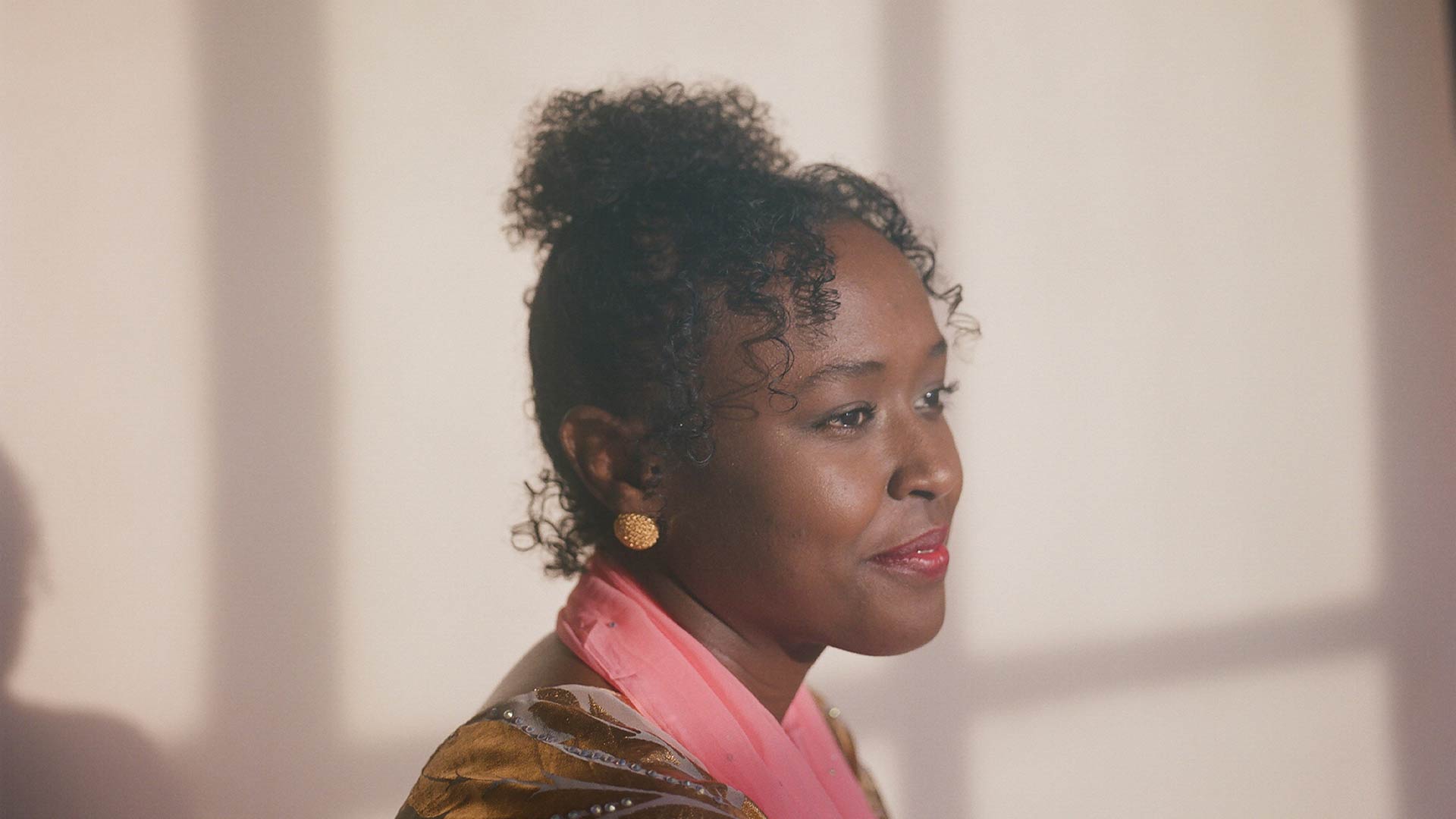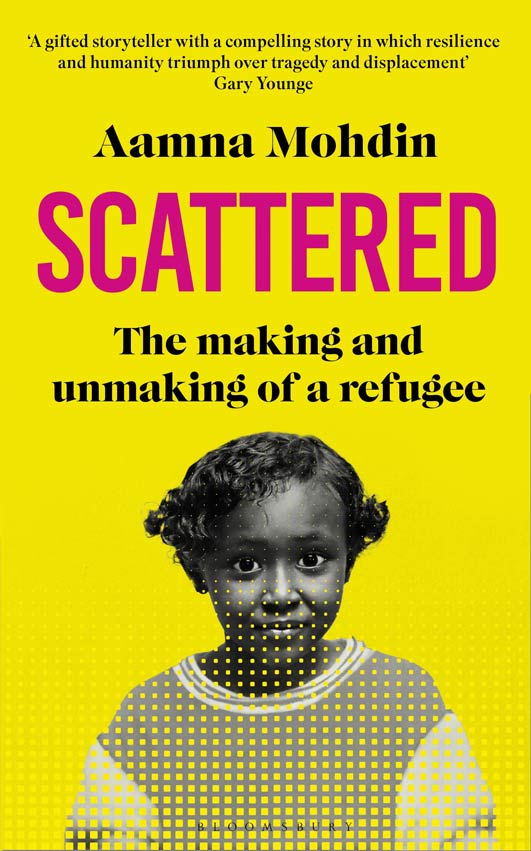Aamna Mohdin explores personal and national histories in her book, Scattered: The Making and Unmaking of a Refugee

Hena J Bryan is a freelance writer and editor
Aamna Mohdin delves into personal and national histories in her new book—an empathetic meditation on the refugee experience.

Hena J Bryan is a freelance writer and editor
To what extent is luck a factor in the paths we lead in life? And how do our lived experiences shape our identities? For Aamna Mohdin, a community affairs correspondent at the Guardian, luck played a pivotal role in shaping her current life. Born during the turmoil of the Somali Civil War, Mohdin’s early years were marked by violence and instability, forcing her to flee in search of safety and belonging. However, despite the daunting challenges she faced, Mohdin not only found refuge in the United Kingdom but also built a career that reflects the resilience of her past. In her début book, Scattered: The Making and Unmaking of a Refugee, Mohdin courageously revisits a past she spent two decades trying to escape. Through her heartbreaking narrative, she traces her tumultuous journey from Somalia to the UK, offering a raw and unflinching portrayal of the realities and repercussions of displacement. Alongside recounting her personal struggles, Mohdin sheds light on her achievements as an award-winning journalist and how she uses her platform to amplify the voices of refugees worldwide.
Mohdin’s journey in journalism began as a way to distance herself from her past, but it ultimately brought her closer to it. “Initially, I studied science journalism because I wanted to distance myself from my personal experiences. I was careful not to cover certain stories to avoid being pigeonholed,” she explains. However, the stories of refugees and displaced people continued to resonate with her. “When I began reporting on ‘Black issues’, particularly refugee stories, I could do so in multiple languages—English, Arabic, and Somali—capturing the humanity of the situations,” Mohdin shares. This linguistic versatility allowed her to connect with her interviewees on a deeper level and provide a more nuanced perspective on their experiences. “My language skills and background allowed me to empathise deeply with these stories and offer comfort to people by providing a familiar face.” Mohdin says that reporting on these issues forced her to confront her past and led her to “discover” herself as a reporter, raising questions about “who I am, where I come from, and where I belong.”
A critical moment in Mohdin’s career came while reporting in Dunkirk, France. Mistaken for a refugee, she faced a stark realization about her own circumstances. Mohdin tells me: “A refugee camp was being monitored by French soldiers, and they began pulling out people who looked like refugees. They pulled me out, assuming I was an asylum seeker, and I had a gun waved in my face. It took some back and forth before they realized I was a British citizen.”
It was sheer luck that I escaped the fate of many Somali refugees who weren’t fortunate enough to find safety
Driven by survivor’s guilt and a desire to understand the randomness of fate, this incident inspired Mohdin to write Scattered. “In that moment, I asked myself: what makes me different from those being herded onto a bus so inhumanely? I wanted to unpack this tension. I realized it was sheer luck that I escaped the fate of many Somali refugees who weren’t fortunate enough to find safety. A refugee once asked me, ‘How?’ I couldn’t answer, because the only answer was luck,” she reflects.
In Scattered, Mohdin explores the complexities of identity and displacement. One tender moment during her writing process was interviewing her father in Somalia. Reflecting on her visit, she says, “When I was in Somalia with my dad, my main purpose was to interview him in the family home he was rebuilding. While there, I pondered on who I might have been had I not been displaced. Would I still have become a writer? I met with other Somali creatives and realized that storytelling is deeply ingrained in Somali culture—Somalia is known as the land of poets.”
Through this introspective journey, she reconnects with her refugee self and embraces her Somali identity. “Although I concluded that I would’ve always been a writer, I found it difficult to connect with my refugee self. I really distanced myself from my Somali identity,” she confesses. “However, writing this book has changed that. It has allowed me to contribute to the literary canon and learn so much about my heritage. I feel more settled and connected after writing this book.”
Mohdin’s role at the Guardian as the first Community Affairs Correspondent was born out of the Black Lives Matter movement, reflecting the publication’s desire to bolster reporting on issues of race, diversity, inequality, and community cohesion. Mohdin is acutely aware of the responsibilities that come with telling marginalised communities’ stories. “I’m very honest about the potential consequences of writing someone’s story, especially regarding immigration issues,” she emphasises. “I’m not a social or support worker, and I make sure to communicate the possible downsides of being featured in a national publication. The compassion and empathy people show when sharing their stories is remarkable; they often do so to effect change for others. I strive to represent people authentically and take care to explain their rights, allowing them to control how much they reveal.”
Transitioning from reporting to writing a deeply personal book presented its own challenges. “I wasn’t used to writing in the first person, especially as a news reporter where neutrality is key,” Mohdin admits. “I started this book assuming I was a very boring person. My editor helped shake me out of that mindset by asking what I was feeling in those moments. It felt strange at first, but by the end, I loved it.”
Sharing her own story required a level of vulnerability that was unfamiliar to Mohdin as a journalist: “I hope to continue balancing both styles. I’m so proud when I look back at the early drafts of the book. My team understood that this was not just a literary journey, but also a deeply personal one.”
Through Scattered, Mohdin tells her own story and also amplifies the voices of others, offering an exploration of identity, luck, and resilience. Mohdin hopes Scattered will inspire other refugees to share their stories and envisions a future where refugees are the primary narrators of their experiences, contributing to a more authentic discourse on displacement. “I want to see a larger body of work from refugees themselves. My greatest hope is that refugees, especially child refugees, will read Scattered or hear me speak and be inspired to tell their own stories,” she says. “I hope people will turn away from ghostwriters and choose to represent their own experiences through writing, photography, or art. We are the ones best placed to tell these stories.”





